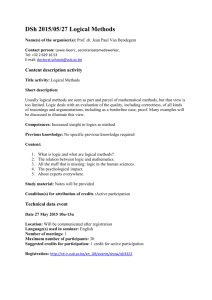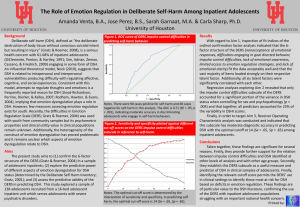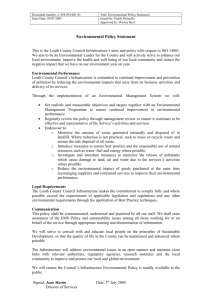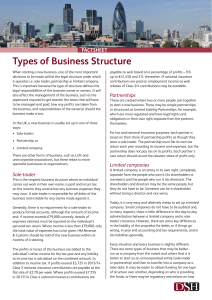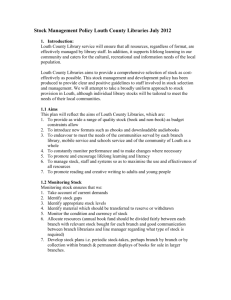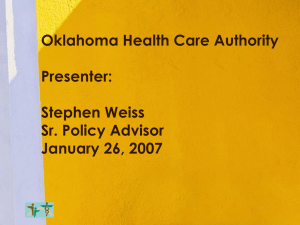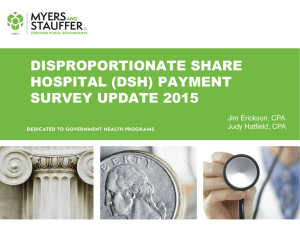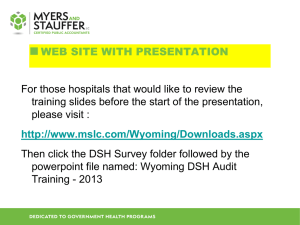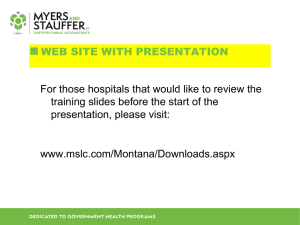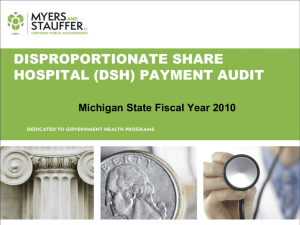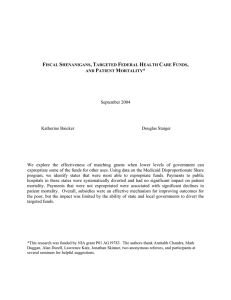A deliberate self harm -nurse-led client support - HPH
advertisement
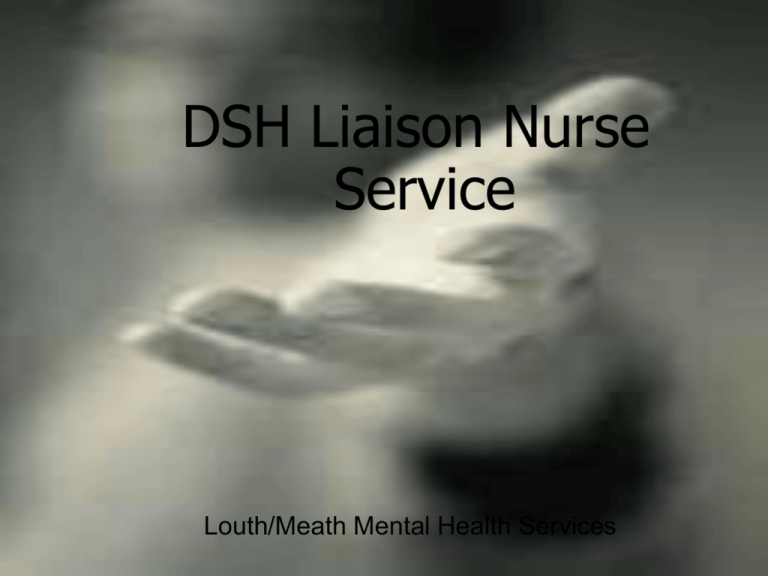
DSH Liaison Nurse Service Louth/Meath Mental Health Services Philosophy of Service National task force on suicide (1998) “every case of parasuicide be examined by the liaison psychiatric team and that each team nominate a health care professional to oversee the future management of these individuals”… Suicide in Ireland (2001) “specific attention to be paid to those who deliberately self harm (DSH)”… To provide psycho-social assessment to individuals who have been been admitted to the Louth County Hospital with DSH. To achieve anti-discriminatory practice while working actively to contribute to a better understanding of DSH and to provide a service which conveys respect for the dignity and worth of each individual assessed and their families. Of known risk factors DSH has strongest association with suicide Goals and Objectives To offer a priority response to requests for assessment to clients admitted to the Louth county hospital following DSH on a Monday to Friday basis To offer relatives and friends the opportunity to speak to the dedicated professional To ensure the completion of a comprehensive risk assessment and liaison and referral on to appropriate agencies To co-ordinate follow-up and after care plans Aim to form link for future help, screen for psychiatric disorders; Assess safety/risk; Use scaling questions; Offer an opportunity to have story validated and focus on strengths, past coping and clarify future options and vision Today’s Situation Critical point in someone's life – can be used as a TURNING POINT Patients want conversation and not Q & A session Not a problem saturated assessment but a conversation that is in itself useful i.e. Normalise, safety plans, exception questions, generate possibilities, use existing support Diverse nature of group – drop out common Collaboration is key Work with Drs and MSE and use MDTM mtg Use recognised assessment tools Incorporate psychiatric nursing skills in one- toone and family work Initial Assessment Meeting. Set Appointment for fixed time. Offer relatives and friends time Contract for 4- 6 sessions initially Client to set agenda Set Safety plan in place Focus on existing strengths and abilities Liaison with the community mental health team E.g. Psychiatrist, Affective disorder team, CPN, Alcohol Counsellor and the clients GP. DSH Liaison Nurse Service Statistics 2002 Totals Male 45 Laceration 13 Female 60 Drugs 9 Times Seen 291 Asphyxiation 2 Hx DSH 45 Other 35 Psych Hx 35 Louth 97 Unemployed 30 Monaghan 8 Overdose 70 Pts Seen in LCH 80 Alcohol 41 DNA’S 55 What Have We Learned? Diverse client group – live chaotic lives Difficult to engage with high drop-out from services Able to see people at the heart of their crisis – not useful to have appointments in 2-3 weeks time Vital for recognising signs that could prevent future crisis Suicide is often a means towards an end rather than an end itself Overwhelming sense of embarrassment leads to added vulnerability Staff in LCH positive about role Recommendations 18 months on: Assessed 174 people. Further 20 people @ 28.02.03 Follow-up plans agreed with over 80% Engagement better if seen in LCH Most common presenting difficulties include: alcohol abuse;Situational crisis; Inter-personal difficulties Comments include: want time to be heard;Choices re: follow-up, opportunity for family to be involved; Not blanket clinic attendance; Possibility for future access and support Need for audit/research to facilitate a better understanding of DSH Development of protocols and policies Share information and experiences of this pilot project THANK YOU
